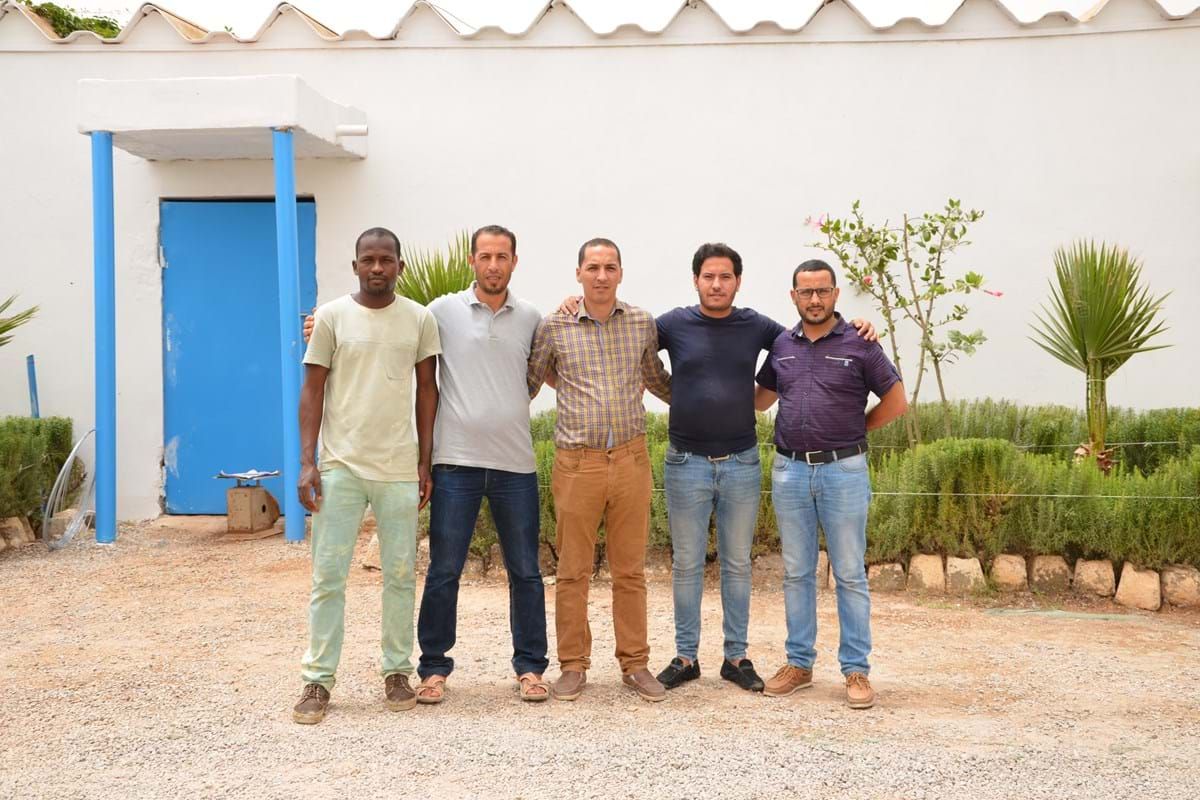November has arrived. We are in the middle of the Autumn and the days are getting shorter with fewer hours of sunlight. This means that we are turning our lights on once again to ensure that the tomatoes in our greenhouses in the Netherlands receive enough light. Additionally, our growers have an expanding production area abroad. Currently, we have 87 hectares in a number of countries that have the perfect climate to grow our products during winter and throughout the year. We will provide more information on this topic in this newsletter. We put three of our growers, of whose production is conducted abroad, in the spotlight.
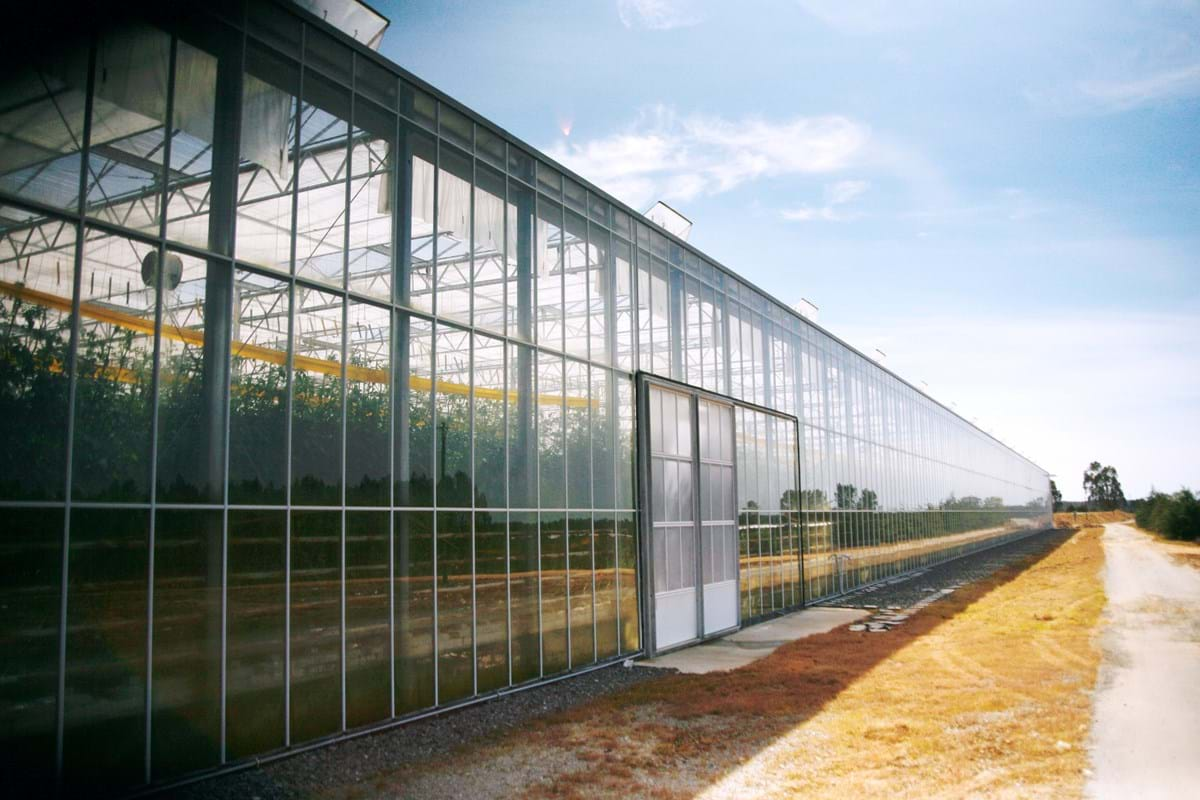
Our Tunisian sweet peppers are enjoying the warm weather
About fourteen years ago, four growers collaborated to purchase 80 hectares in the Noord-Holland province to start growing vegetables on a large scale. There, they grow flavourful sweet peppers. A number of years after establishing their enterprise, the greenhouse saw a significant increase in demand for year-round production. John van Marrewijk, the commercial director of Kwekerij de Wieringermeer, explains this in more detail.
‘We saw significant demand for year-round supplying. We initially tried to achieve this in the Netherlands through the use of lighting. While you can bring the start of the season forward, it is really difficult for us to grow sweet peppers year-round in the Dutch climate,’ explains John. ‘With a view to the future in which demand for these products will only increase, we started investigating opportunities abroad. There are two greenhouse areas in Tunisia. One area is close to Gabès, which is where our Agro Care colleagues are. The climate there is much warmer, which is perfect for tomatoes but not for our sweet peppers. Tunis is a greenhouse area that is well-suited to our growing our products. The area receives plenty of sunlight, but is not too warm. So our choice was easy to make!’ The Dutch sweet pepper season nicely matches up with the Tunisian growing season, ensuring year-round production is possible.
In 2015, Kwekerij de Wieringermeer began operations in Tunisia. Their Tunisian business partner was already part of an existing company which has 2.5 hectares of plastic greenhouses. John and his partners are affiliated with that company. Since then, they have grown significantly. Currently, between 80 and 100 employees work there. Right now, around 10 hectares’ worth of peppers are growing in the plastic greenhouses. In the Netherlands, they only grow red peppers. In Tunisia, the warehouses are used to grow a wider variety of peppers; namely red, yellow, and orange bell peppers. On a small scale, they are reviewing the possibilities concerning sweet peppers, but they will always specialize in bell peppers.
In the future, Kwekerij de Wieringermeer may expand much more significantly in Tunisia. John says, ‘Adjacent to the company is 55 hectares of land which the Tunisian partner already owns. Plans have been drawn up to expand the production area to 40 hectares. It is clear that we need to take this step if we want to keep up with customer-driven demand. And that is something we really want to do.’
John explains that he has also learned a great deal in the recent period. ‘You can definitely grow produce remotely. This naturally requires a lot of energy from the company, but through weekly talks – online or otherwise – we can keep one another informed and share information to truly make it work. The team in Tunisia is now a well-oiled machine which can operate independently.’
John has also gained new insights on the quality of the product. ‘The quality is exceptionally good. It takes about four days for the peppers to be delivered to the Netherlands, at which point the vegetables are still in perfect condition. The colour quality really stands out, because it’s truly sublime. We really appreciate the sunshine in Tunisia!’
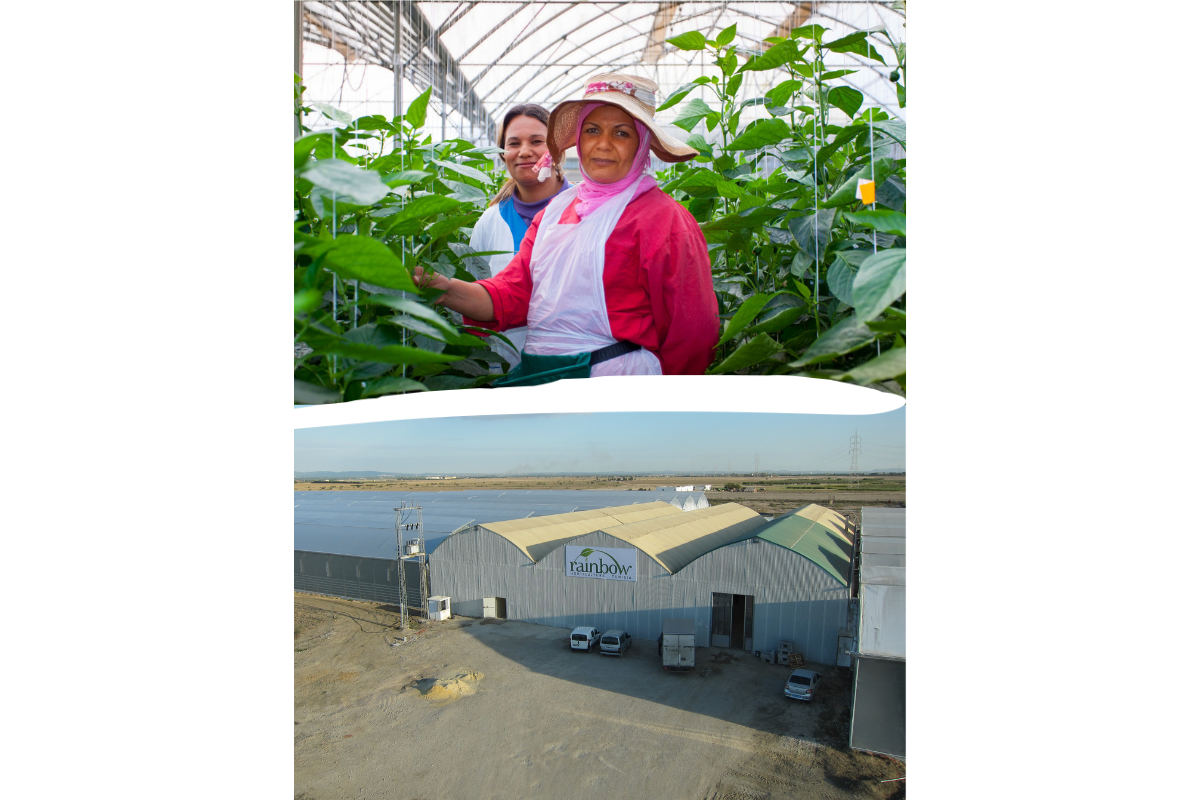
Sweet peppers and tomatoes grown under the Portuguese sun The Dutch way
Frestia is our specialties specialist. They supply us with Vitapep baby peppers, sweet pointed peppers, and mini cherry plum vines known as Amante. Frestia began operating in Portugal in 2001. They grow baby peppers and Amante tomatoes on a 19 hectare area located in Odemira, a unique location on the country’s Atlantic coast.
Wim Zuidgeest, co-owner of Frestia, brings us up to speed. ‘We wanted to extend our paprika cultivation so that it would continue year-round. This means that we could start in January instead of in April. In the Netherlands, this cannot be achieved without the use of lighting. As a result, we looked for alternative methods. The local climate is the reason we started growing our products in Portugal. While it resembles our Dutch climate, it has more hours of light. The area also remains relatively cool during the summer. The second reason was the collaboration with another entrepreneur from The Westland who already grew products in Portugal. Together, we established a new company.’
Naturally, it always takes a while to get used to doing business abroad. Wim explains, ‘You are confronted by all kinds of new circumstances. The working method differs and you find yourself in a different culture. Ultimately, it works best when you trust in the people on site. After all, there is no rule stating that good growers are always from the Netherlands. Locals are perfectly able to master the profession. You need to give them enough space. If you want to run everything from your head office in the Netherlands, it won’t work.’
In the coming years, the Frestia growers want to expand their production area – both in the Netherlands and in Portugal. ‘The quality of the products we grow here is so good and we want to continue to treat all consumers to access to these products. We are hard at work testing the cultivation of sweet peppers. Our plans for Portugal are just in the early stages.’
Frestia has specialized in cultivating sweet peppers for over 45 years. Nowadays, they are also experienced in growing small tomatoes and they cultivate mini cherry plum vines in Portugal. The latter are sold under the ‘Amante’ brand, which means ‘lover’ in Portuguese. That means you can expect a delicious, sweet, juicy tomato!
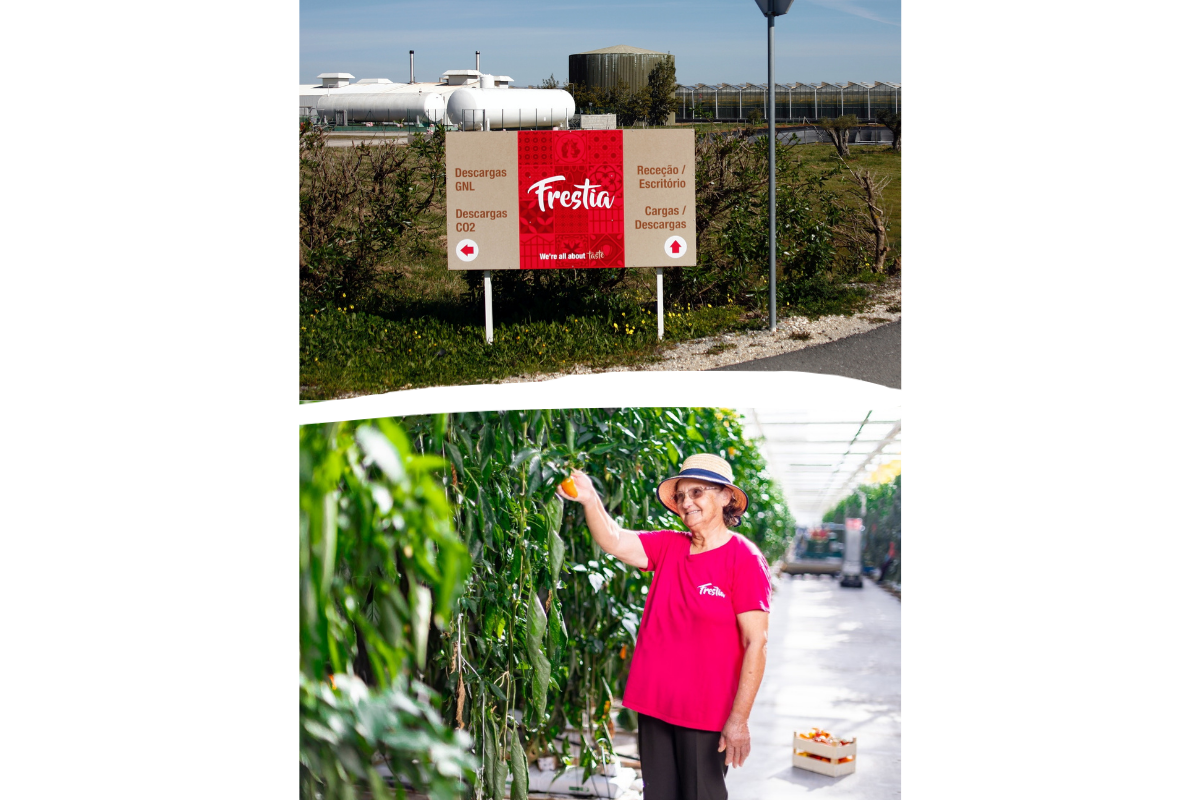
Tomatoes grown thanks to the heat and light in...
Tunisia
We speak with grower Philip van Antwerpen, responsible grower of Desert Joy (Agro Care's Tunisian site), a modern and sustainable greenhouse horticulture business in the Tunisian desert. In the previous newsletter, we shed some light on desalination in Tunisia. This time we wanted to learn more about Fairtrade and why Tunisia is so well-suited for cultivation in wintertime.
How did our grower end up in Tunisia? Although it may not seem like an obvious choice, the decision was quickly made by Desert Joy. ‘In 2009, we searched for a good location where we could grow our products in winter. Spain does not receive enough hours of sunlight, so the tomato season is practically the same as the one in the Netherlands so there is little gain there. That meant that this was not a good alternative in our view. That is when our attention was drawn to Tunisia. It is close to Europe, takes 24 hours to reach by boat, and can be flown to in two-and-a-half hours. It receives a huge amount of light, even in months when the Netherlands receives fewer hours of light. Furthermore, the ground contains warm water which we can use to heat the greenhouse. Above all, the local population is well-developed, speaks a reasonable level of English, and is generally good-mannered! We found the choice easy to make.’
Desert Joy is making serious moves. The prestigious Desert Joy Hischa project is ready in the starting blocks. This amounts to 120 hectares of glass greenhouses with solar panels, combined heat and power plants, and desalination plants. ‘It took a while to get everything sorted when it came to permits and the like, but we are almost finished,’ explains Philip. He hopes that they can lay the foundation stone within six months from now.
‘Additionally, we are working hard to both perfect our existing greenhouse and provide further training to our team.’ This means that sufficiently trained staff will immediately be available when the Hischa location begins operating.
Philip and his team work in accordance with the Fairtrade Standard for Hired Labour. It focuses on employees and enables them to combat poverty, improve their position, and exercise greater control over their lives. The requirements set by the Fairtrade Standard for Hired Labour ensure that employers pay fair wages and that principles on health, safety, and the environment are adhered to.
This is all checked in a strict and serious manner. The company Flocert audits Desert Joy once a year over the course of a week.
The available Fairtrade budget is used to fund a range of social projects. For example, all employees receive an extra pay-out each year, employees receive a voucher which can be used to purchase school supplies for their children, and everyone is offered a healthy, hot meal each day.
In addition to the funding provided by Fairtrade, Desert Joy recently allocated a significant amount of money to establish a day-care centre – which is now almost complete.
‘All of our tomatoes are grown in the same circumstances. All of our tomatoes are therefore Fairtrade produced. However, not all of them are sold under the Fairtrade label. This means that for a proportion of the tomatoes, no contribution is paid towards the special Fairtrade fund. For this reason, we wanted to do something for the local society. We care for people!’
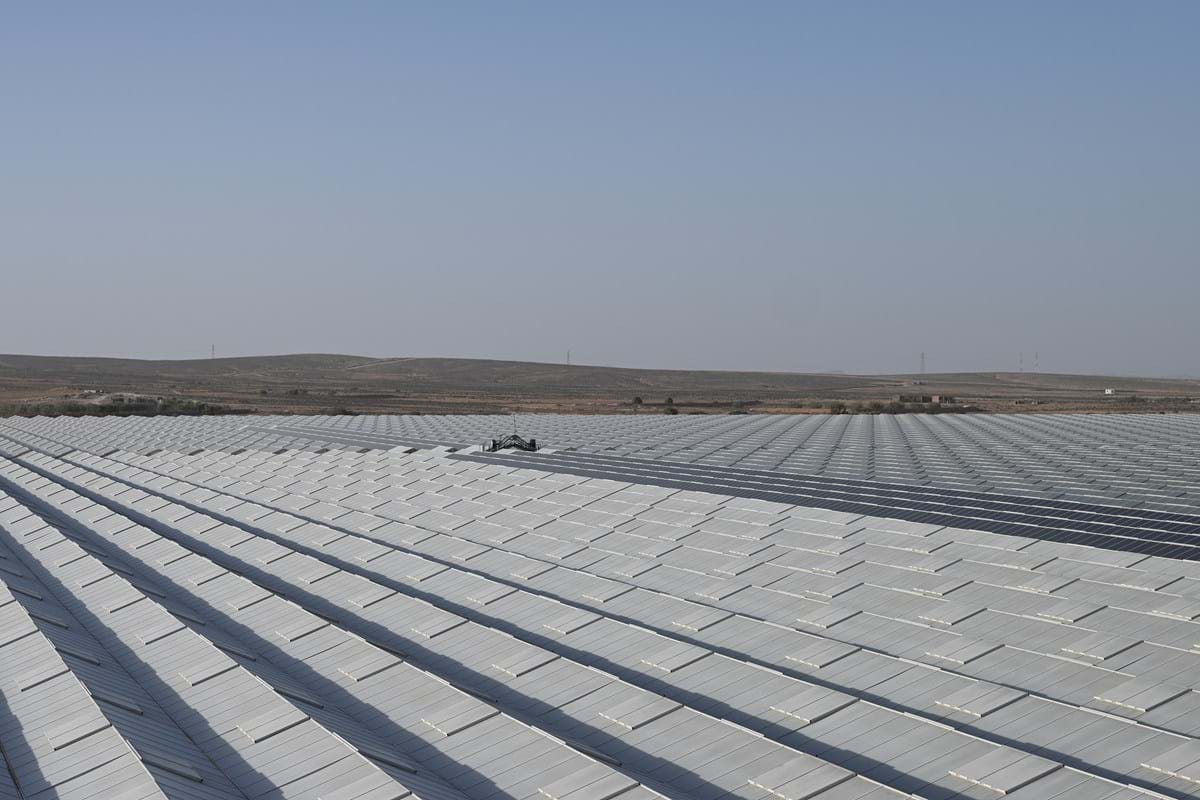
... and Morocco
In addition to Desert Joy, Agro Care has a location in Morocco: Quality Tomato Marocco (QTM). Here, Ad van Kester – a grower at by Agro Care – grows tasty, sweet baby tomatoes. He explains, ‘In Morocco, we grow our products according to the most natural method; we grow them in tents as opposed to in greenhouses. We do not use any heating or lighting. At this location, tomatoes grow like nature intended with a low cost due to energy consumption as a result. It’s a win, win!’
An interesting fact is that growers outside of the Netherlands learn from Dutch knowledge and that our Dutch growers learn from growers abroad. Ad gives the following as an example: ‘In Morocco, we learned that “chalking” is very important.’ Chalking is spraying white paint on the exterior of the greenhouse or tent to keep out the direct sunlight. This benefits the product quality. ‘Thanks to the chalking, our baby plum tomatoes no longer suffer from yellow “shoulders”,’ explains Ad.
Ad sees fantastic opportunities for the future in Morocco. ‘Many tomato growers are active in our area, but by far we have the best transport links. This ensures that our tomatoes reach the Netherlands within four days. Other growers in Morocco easily exceed this with transport taking at least five days. If we work together, we can ensure more products will reach their destination more quickly. Naturally, this is a very interesting prospect!’
